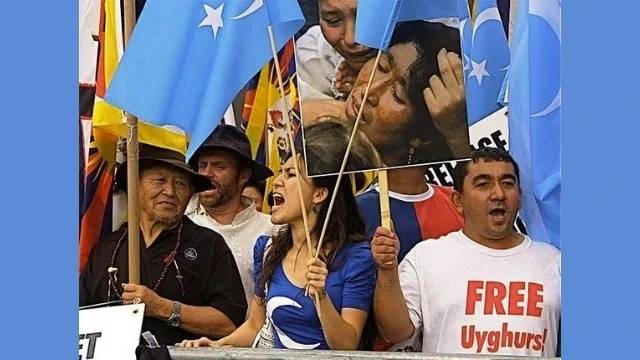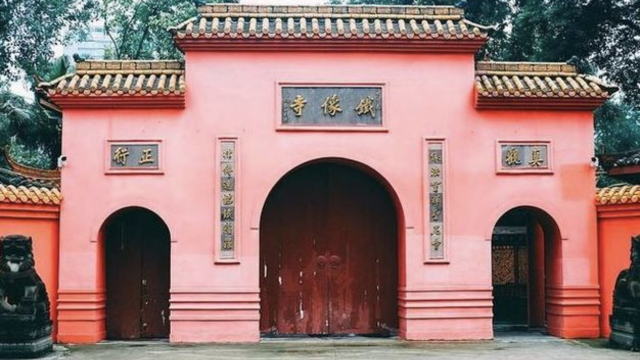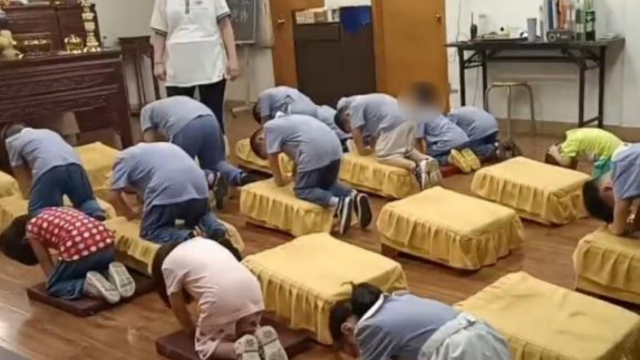
WASHINGTON – U.S. officials say China is targeting relatives of some Uighur activists with terrorism charges, while intimidating others who raise awareness about the plight of the Muslim minority in the Xinjiang region.
Citing a recent Chinese official announcement about sentencing Gulshan Abbas, sister of Uighur-American activist Rushan Abbas, to 20 years in prison on terrorism charges in Xinjiang, Nury Turkel, a commissioner at the bipartisan U.S. Commission on International Religious Freedom (USCIRF), said the Chinese government frequently uses relatives of Uighurs abroad as hostages to intimidate and silence activists.
“Many Uighurs who live overseas continue to live in fear for their safety and the safety of their relatives still in the Uighur region,” Turkel told VOA.
Rushan Abbas said her sister’s imprisonment is a retaliation against her activism in the United States.
“Six days after I had given a speech on a panel at (the) Hudson Institute about China’s abuses against Uighurs in September 2018, my sister was taken from her home by Chinese authorities,” she told VOA, explaining that terrorism is the term China uses when targeting Uighur activists and their families.
Call for release
USCIRF’s Turkel said that under the Uyghur Human Rights Policy Act, the U.S. government should impose sanctions on Chinese officials and entities that target U.S. citizens, residents and other individuals living in the United States who expose China’s abusive policies in Xinjiang.
The Uyghur Human Rights Act went into effect in June 2020 as a response to China’s crackdown on Uighur Muslims in Xinjiang.
In a recent statement, the U.S. Congressional-Executive Commission on China (CECC) called on the Chinese government to release Gulshan Abbas.
Chinese officials responded by confirming her prison sentence.
“Gulshan Abbas was sentenced to jail by Chinese judicial authorities for crimes of participating in a terrorist organization, aiding terrorist activities and assembling crowds to disrupt social order,” Wang Wenbin, a spokesman for China’s Foreign Ministry, said during a press conference in late December.
‘Genocide’
In recent years, international rights groups and Western governments, including the U.S., have condemned China’s increased systematic repression against the Uighurs and other Muslim minorities in Xinjiang.
They say the repression includes the internment of more than 1 million Uighurs in detention camps, forced sterilization of women, coerced labor, surveillance of people’s movement, banning the Uighur language and forcing people to abandon their religion.
China denies international observers access to Xinjiang, while describing its internment facilities as “vocational training centers” aimed at educating Uighurs in order to “counter terrorism and alleviate poverty.”
On January 19, then-U.S. Secretary of State Mike Pompeo declared that China has committed crimes against humanity and genocide against Uighurs.
On the same day, Antony Blinken, now secretary of state, affirmed the genocide designation in his confirmation hearing, saying “that would be my determination, as well.”
Blinken reiterated his position a day after being confirmed.
“My judgment remains that genocide was committed against the Uighurs and that hasn’t changed,” he said.
Chinese Foreign Ministry spokesperson Zhao Lijian condemned the accusation, saying last week “there’s never, ever such a thing as genocide in China.”
Other cases
Nicole Morgret, project manager at the Uyghur Human Rights Project (UHRP) based in Washington, said activities by Uighurs that are not against Chinese law, such as transferring money to family or friends abroad, are also deemed terrorism by the Chinese government.
“Many of the people given these charges were prominent and respected members of their community,” she told VOA.
Abdujelil Helil, a 57-year-old Uighur businessman and chairman of the Chamber of Commerce in Kashgar, a city in southern Xinjiang, was sentenced to 14 years in prison in 2017 on terrorism charges for wiring money to a friend from Turkey to buy gifts for her daughter’s wedding, according to a relative who requested anonymity for fear of retribution from Chinese authorities.
A Chinese court document, provided to VOA by the relative, accused Helil of a “crime” of “materially aiding terrorist activities.” Helil’s assets, worth about $11 million, were confiscated.
Following his detention, 16 of his relatives, including his wife, son and his business associates were also taken to internment camps, according to the relative.
“I learned recently that after I talked to Radio Free Asia’s Uighur Service in 2019 about Helil’s imprisonment, the authorities in Xinjiang added one more crime to his revised court case — ‘joining terrorist activities,’” the relative said.
Some Uighurs in the United States told VOA they have become activists after their relatives disappeared in Xinjiang in recent years. They say China has left them no choice but to advocate, despite their fears for the safety of their relatives in the region.
Kalbinur Gheni, a sales manager in Washington, told VOA she became an activist in 2019 after her sister, a 40-year-old elementary school art teacher, was taken to internment camps by Chinese authorities in 2018 in Cherchen county, Xinjiang.
“My sister was later sentenced to prison for 17 years for praying during our father’s funeral and having (the) Quran in her possession,” Gheni said.
After giving a speech at Rochester University in October 2019 and later posting tweets about her sister’s case, Gheni said Chinese authorities in Xinjiang have continued to threaten her.
She said Chinese police have added her on WeChat, a Chinese messaging app, and sent her threats, one that said, “If you keep speaking out against China and don’t remove testimonies from Twitter, your mother and brother won’t be safe, and you’ll never see your sister live again. But if you behave well, we’ll let you see your sister.”
Akida Polat, a 28-year-old Uighur activist based in Seattle, Washington, started working for Campaign for Uyghurs as an outreach director after she was unable to get news about her mother, Rahila Dawut.
Dawut, 54, is an anthropology professor at Xinjiang University who was reportedly taken to internment camps in December 2017 by Chinese authorities in Xinjiang.
“I heard from an unofficial source that the Chinese government accuses my mother of separatism, which is absolutely absurd,” Polat told VOA, adding that while she advocates for her mother’s release, she is also fearful when and if the Chinese government detains her father in retaliation for her activism.
Source:VOA












